Vegetable garden weed control is one of the most important jobs on your vegetable plot. Without controlling the weeds you will not be getting the most out of your gardening efforts.
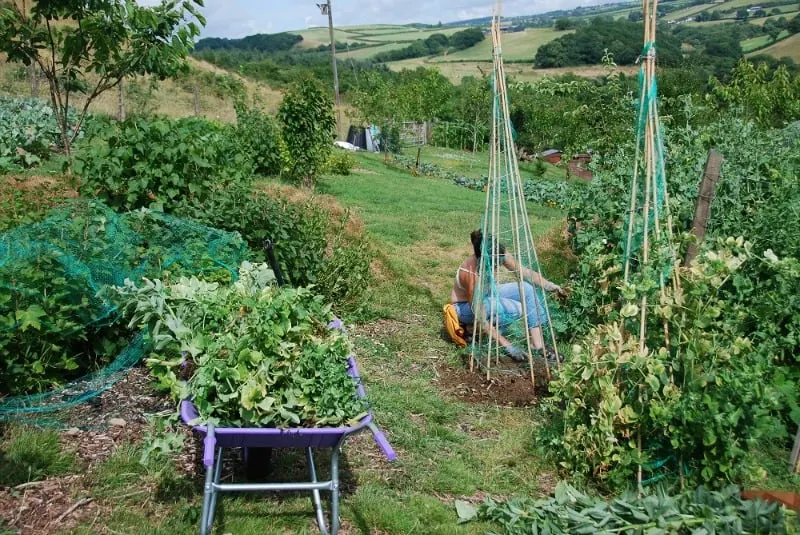
When you first start a vegetable garden, if the land is inundated with weeds, it can be disheartening. I suggest you tackle this job in stages rather than clearing everything in one go.
In the rich soil of vegetable gardens, some of the weeds can quickly grow to over 6 feet. And if you happen to start your garden later in the summer and the weeds are already established, it can be overwhelming.
Tips For Vegetable Garden Weed Control
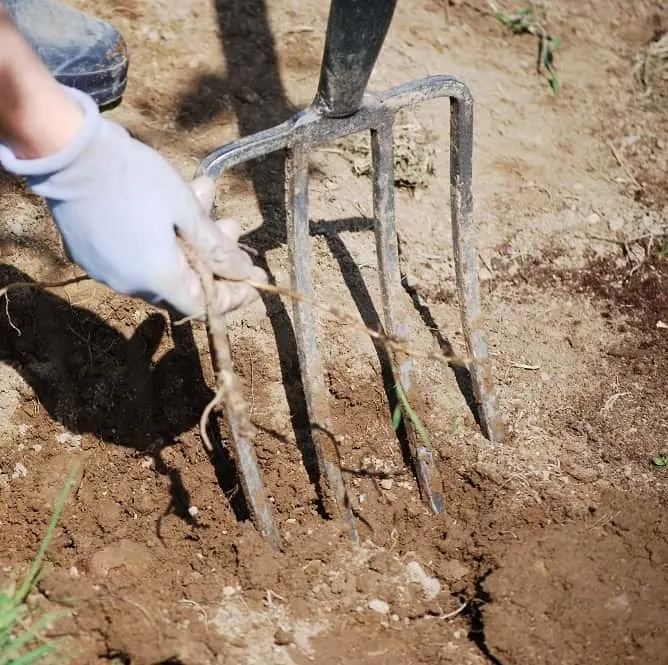
There are many ways to control weeds. Here are just a few:
- use livestock to keep weeds down
- use weed control fabric
- mulch your veggie beds
- try the lasagna (no-dig) gardening system
- plant in small beds for easy weeding
- when all else fails, use chemicals
Here’s what you can do: cover half of the garden with cardboard or old carpet to smother the weeds, and concentrate all your efforts on the other half.
Premium 5oz Pro Garden Weed Barrier Landscape Fabric By ECOgardener – Durable & Heavy-Duty Weed Block Gardening Mat, Easy Setup & Superior Weed Control, Eco-Friendly & Convenient Design, 4ft x 50ft Using a vegetable garden weed barrier is a good way of controlling and killing off weeds in a certain area, especially if you can’t attend to that part of the plot for some time.
Using a vegetable garden weed barrier is a good way of controlling and killing off weeds in a certain area, especially if you can’t attend to that part of the plot for some time.
But before you even start to clear any area of your plot it is well worth taking the time to identify which weeds are growing well. It may seem strange to identify plants that you do not want, but flourishing weeds in your vegetable garden can tell you a lot about the soil makeup and nutrition 😉
Once you are ready to start to clear your garden you will need to decide on what weed control method you are going to use.
Do not be tempted to trim weeds down and rotavate. I have seen many people try this and although the results look fantastic at first, your garden will be drowning in weeds in just a few weeks. This is because the rotavator chops up the plants and each chopped bit of root will normally start to regrow. So now one weed could become fifty in just one pass of a rotavator. Ugh…
Vegetable Garden Weed Control Shortcuts
Another, perhaps overlooked form of clearing a vegetable plot could be livestock. Goats are some of the best animals at clearing an area of vegetation. If you could keep goats, they are well worth considering.
Weed killers present an easy solution, and I’m not a fan of using chemicals. Do your research to help you make an informed choice about herbicides. If you are going to use weed killers, choose well, or you’ll be poisoning parts of your garden soil.
Using a no-dig gardening system, also called a lasagna bed is definitely worth looking at. These types of beds are easy to create and work well.
And vegetable garden weed barriers such as weed control fabric, raised beds and mulching are ideas that are well worth looking into.
No matter how you try to prevent weeds, at some time you will have to weed your vegetable garden.
Yes, weed prevention will always cut down your weed problem. But because seeds travel, no matter how careful you are, something unwanted will germinate in your garden.
Garden Weed Barriers
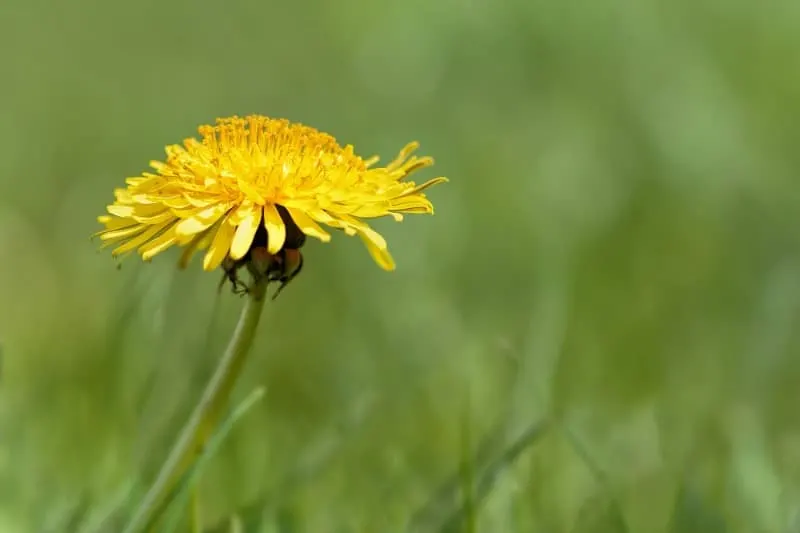
Using raised beds as weed barriers
Raised beds make good weed barriers. Add some weed control fabric at the bottom of the bed, and weeds won’t be able to enter through it.
Weed control fabric works very well, and it is ideal for planting through. Many permanent crops such as strawberries, fruit bushes, and herbs work particularly well when planted through a weed control membrane. Once your bed is created, there is little work needed to maintain it.
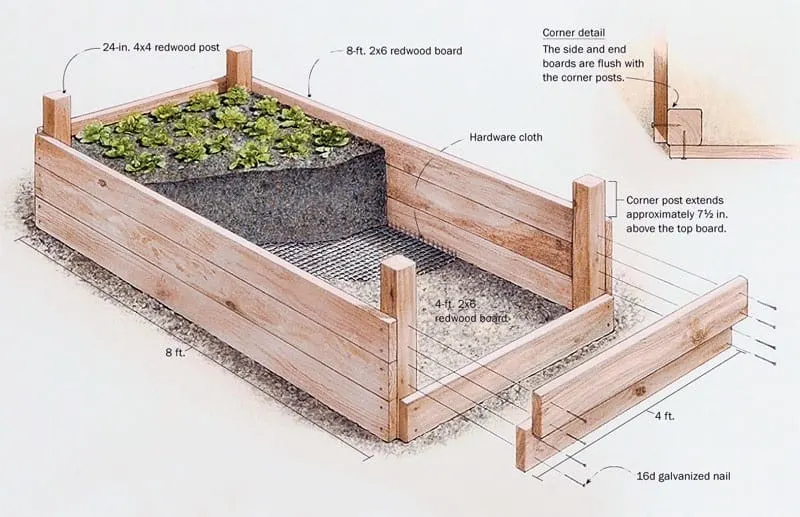
Using weed control fabric on walkways is a good idea as well. It will save you mowing there and keep the weeds down.
Mulching to control weeds
Mulching offers an effective garden weed barrier as it helps to keep the soil in the shade. To mulch your bed, use organic material such as well-rotted manure, compost, leaf mold, or grass cuttings, and spread loosely around the base of your vegetable plants.
You can also use straw which has the added effect of discouraging slugs.
Mulching won’t stop all weeds, but those that do manage to grow through the mass of mulch material will be spindly and weak.
Plant in small garden beds to make weeding easier
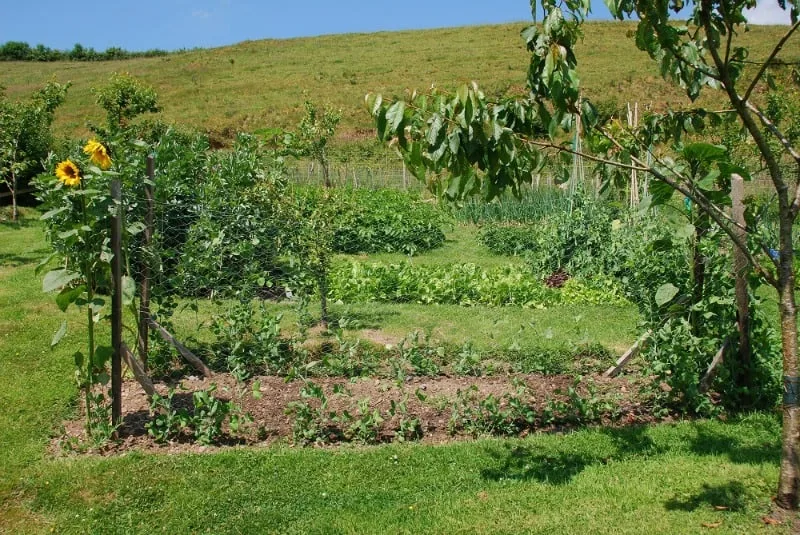
Weed barriers will not completely eliminate the need for weeding.
Somehow, someway, some weed seed will manage to germinate, which will in turn call for some weeding or use of the hoe.
Plant in small beds about 12 feet long and 3 feet wide; this makes it easy to reach the middle of the bed to plant and weed.
Off-season garden weed control
For off-season control, cover the soil with plastic sheeting. It will stop seeds from landing on the garden and eliminate light, which in turn will kill any plants it covers.
You can also use this method to clear a patch of land to bring it into use. It will just take a bit longer: about a year.
A garden with no need for controlling weeds sounds amazing, but the truth is we’ll always be pulling something up or hoeing between our veggies.
If you follow the suggestions here, you just might need to do less of it 😉
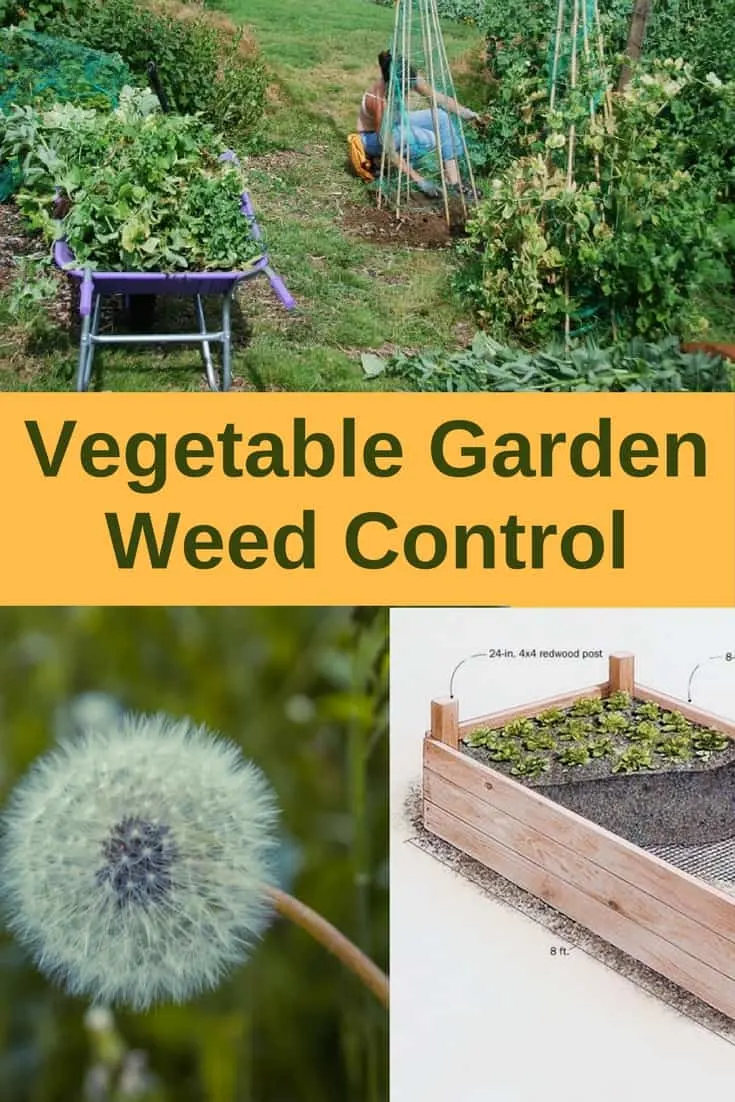

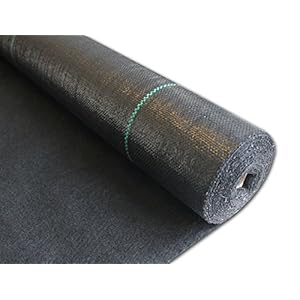
Backyard Vegetable Garden Ideas
Monday 8th of February 2021
[…] Vegetable Garden Weed Control […]
Garden Tower Project - Compost And Garden In One
Monday 10th of August 2020
[…] more nutrients than any industrial farmers would be able to do. Gone are the days of having to weed your garden – your plants will be free of pests and unwanted […]
5 Easy Gardening Activities For Kids
Wednesday 9th of January 2019
[…] could run a little competition to see who can pull the most weeds in the shortest […]
How To Get Rid Of Weeds For Good
Monday 16th of April 2018
[…] course there are vegetable garden barrier methods that can help to eliminate a lot of weeds, but no matter what method you use to control weeds, […]
How To Keep Your Lawn Green And Beautiful ~
Thursday 29th of March 2018
[…] Nothing can destroy a lawn quicker than weeds so, get rid of them before they have a chance to do damage. Spread weed killers across the lawn as early in the season as possible. Learn how to use natural methods to control weeks. […]